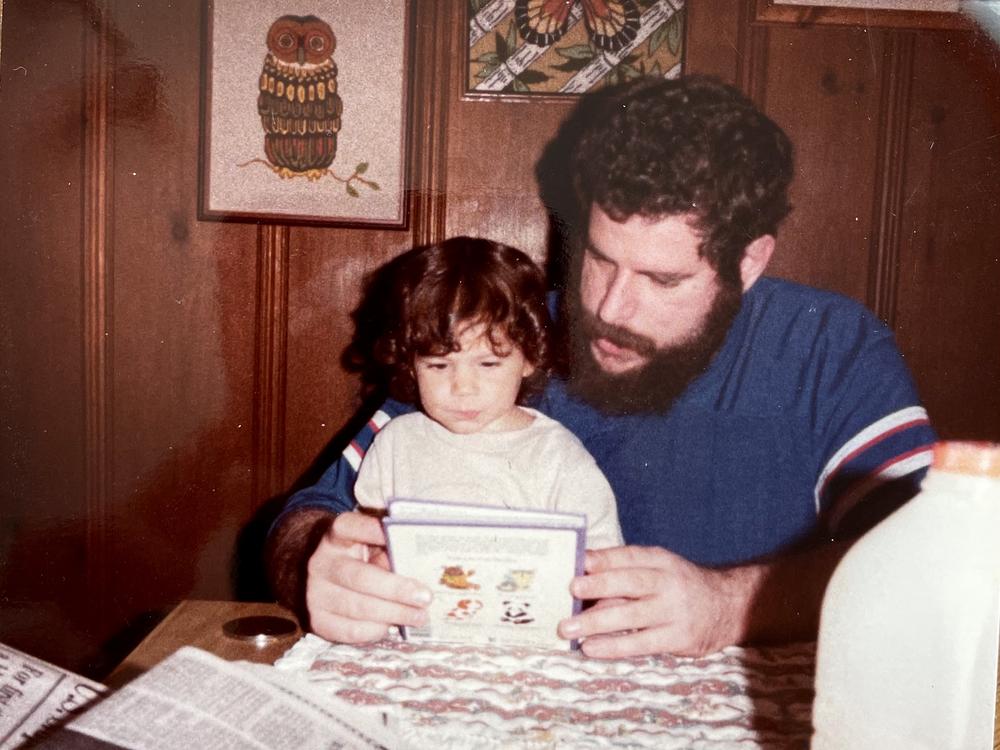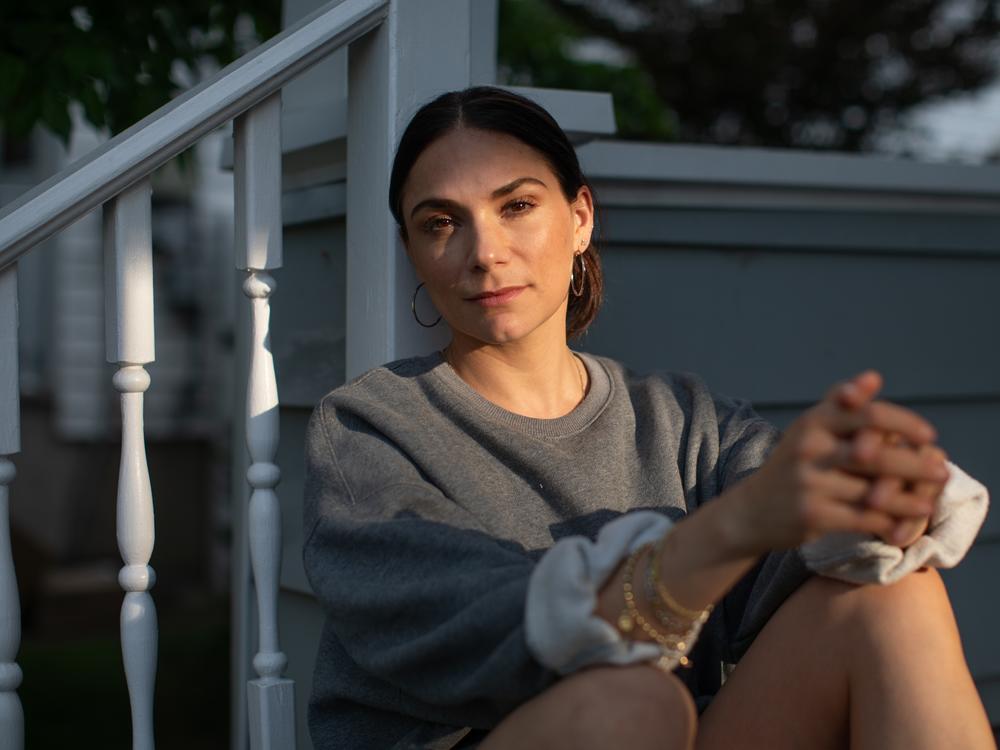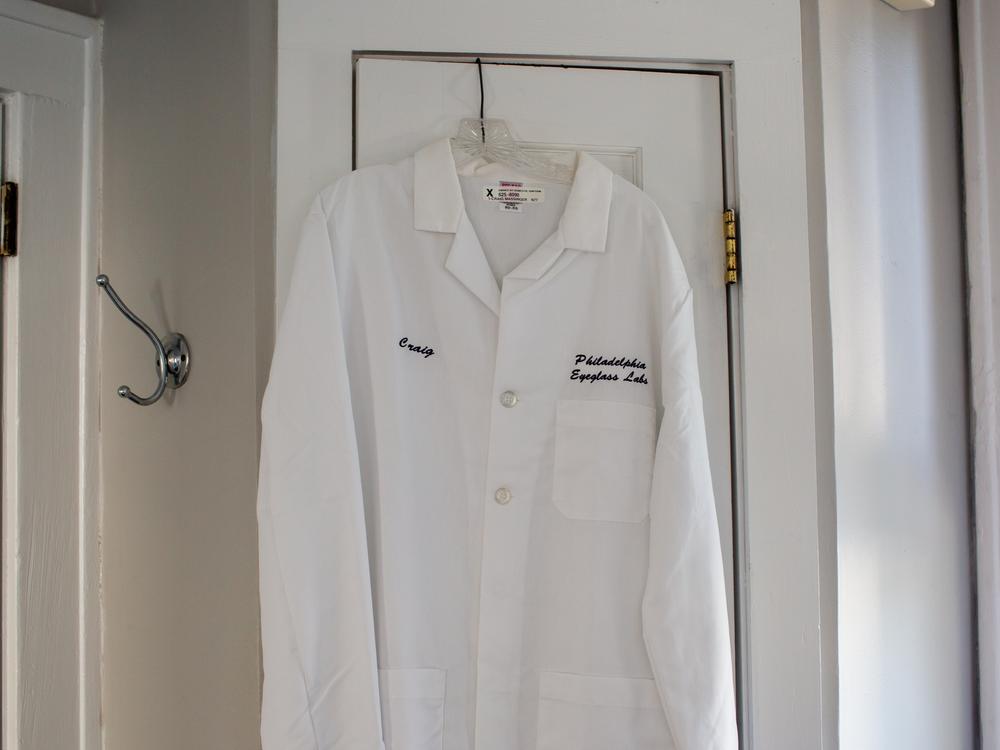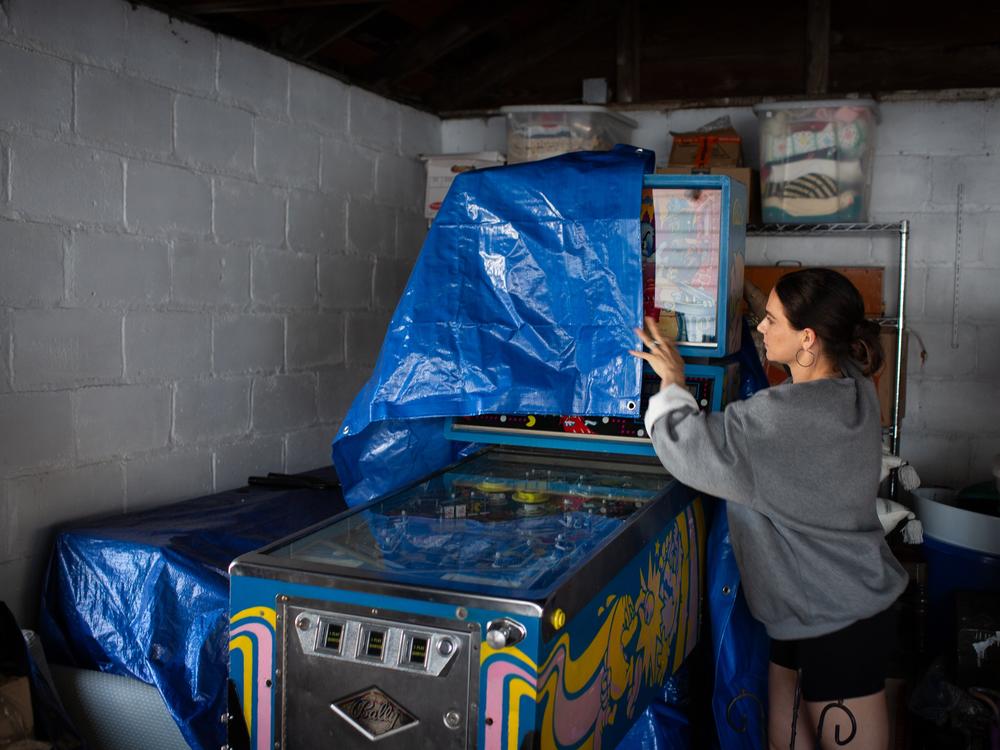Section Branding
Header Content
Her father was killed in a climate-driven flood. Here's how she's remembering him
Primary Content
Mandy Messinger remembers the smell of her father’s pipe. She remembers his obsession with turtlenecks. His excitement when the Atlanta Braves were winning. And the meticulous way he tidied his office at the family eyeglass business that he helped run outside Philadelphia.
“He would blow off the keyboard,” she explains, and then carefully cover the keys in eyeglass wipes. “Everything was moved into alignment. No account was left open. I don’t think my father was ever late on a bill, ever.”
Craig Messinger was reliable. Throughout Mandy’s childhood, Craig worked six days a week. He ate at the same restaurant every weekend. He bought the same shirt in multiple colors. He made the same dry Dad-jokes and attended to the antiques he loved to collect. He was Mr. Predictable, in a good way.
Which is one reason his abrupt death in 2021 was so jarring.
On September 1, 2021, Craig Messinger left his office in the Philadelphia suburbs as usual around 6 p.m. and drove to meet his wife. He never made it. Craig drowned in his car. He was just a few days shy of his 71st birthday.
Craig Messinger is one of hundreds of people every year who die as a result of climate-driven extreme weather in the United States.
The disaster that took Messinger’s life began thousands of miles from Philadelphia.
On August 29th, 2021, a massive, category 4 hurricane called Ida hit Louisiana. Ida formed over abnormally warm water in the Gulf of Mexico, which meant it was carrying extra moisture when it hit land.
Storms like Ida are getting more common because of climate change: most of the extra heat that humans have trapped on Earth is absorbed by the oceans, and warmer oceans are fuel for huge, rainy hurricanes.
The moisture from Ida didn’t stay in Louisiana. As the storm broke apart, bands of rain moved north. By the evening of September 1, they’d reached the Philadelphia suburbs.
“That hurricane, for me, came out of nowhere. It was raining and then it was raining hard,” Mandy remembers. “The flood waters happened really, really fast.”
The storm dropped upwards of 8 inches of rain around Philadelphia in a matter of hours. Streets turned into rivers. Craig’s car was inundated, and he wasn’t able to escape the rising water.
“He called his wife from the car, and he left her a voicemail saying, ‘My car is flooding, I’m gonna die,’” Mandy remembers, tearing up. The fact that her dad knew he was going to die is very painful. “I don’t think I could ever listen to that voicemail, because you hope when someone passes, it’s painless,” she says.
Mandy says she is still processing a lot of things about her dad’s death. Its suddenness, the shock of the rain’s intensity and the violence of how he died have all been difficult to cope with.
It’s only recently that she feels like she can talk about him without breaking down. She has some of the antiques he collected, and takes comfort in having those gentle reminders of him in her home. Her wife bought a tiny Atlanta Braves hat for their 1-year-old son.
And, lately, Mandy has been thinking about how there are other people, spread out all over the country, who have lost loved ones to unprecedented weather disasters.
“I just feel like now it’s every year, every season you hear about it. There are super, super tragic weather events,” she says. Any given disaster might only kill a handful of people. Four other people in the Philadelphia area died in the flood that killed Mandy’s father.
As the Earth continues to warm, climate change will drive more extreme weather events, and the far-flung community of Americans who lose loved ones to extreme weather will continue to grow.
It’s lonely to be part of that community of loss. After a weather disaster, everyone else moves on, Mandy says. “Most people come out unscathed, so they don’t think about it," she says. "But you have these one-off families who are really deeply affected.”
We want to hear from you
Have you lost a loved one in a climate-driven disaster, such as an extreme flood, hurricane, wildfire or heat wave? NPR would like to hear from you. Share your story in the form below.
Your submission will be governed by our general Terms of Use and Privacy Policy. As the Privacy Policy says, we want you to be aware that there may be circumstances in which the exemptions provided under law for journalistic activities or freedom of expression may override privacy rights you might otherwise have.





